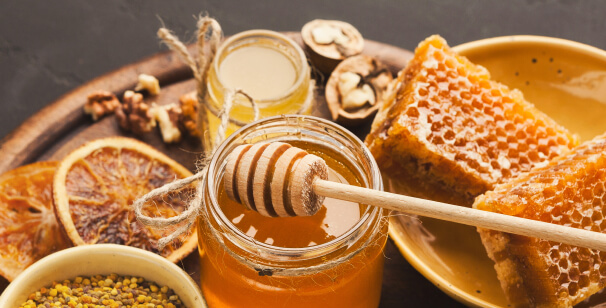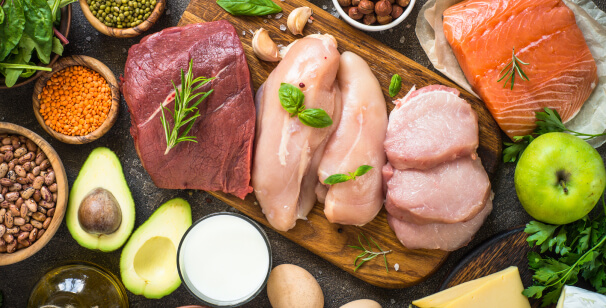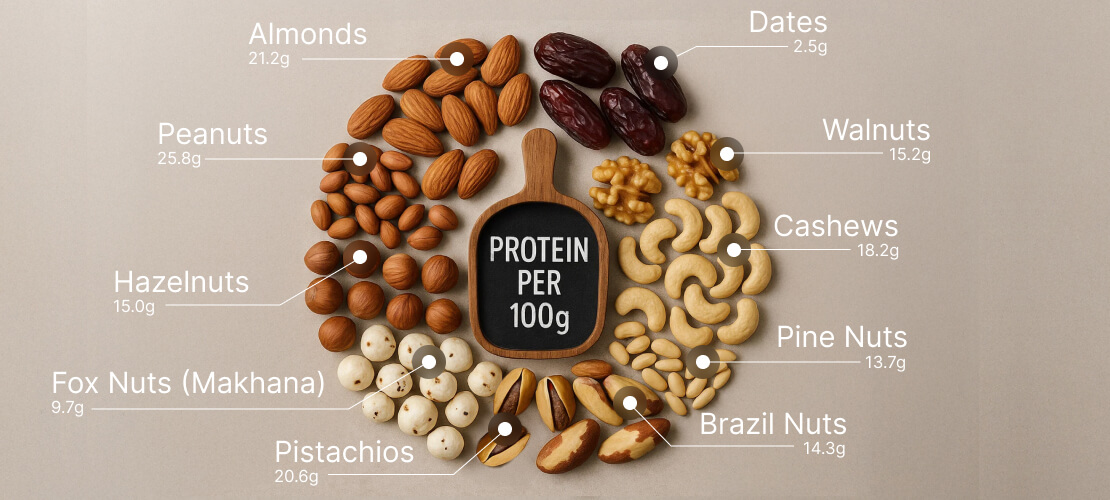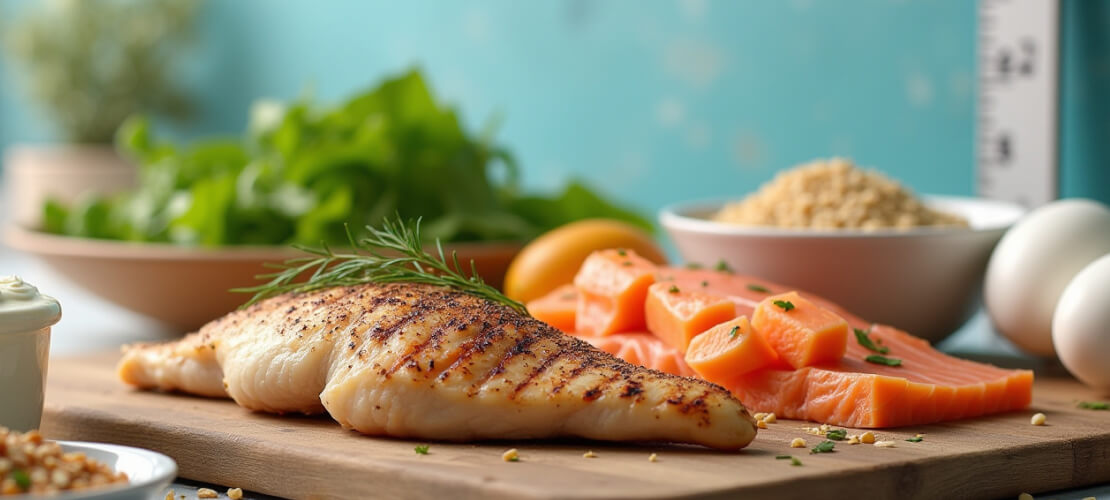Table of Contents
- How Food Combos Work: The Good, The Bad, and The Downright Ugly
- Fish and Milk: A Match Made in... Nightmares
- Milk and Fruits: The Gut-Wrenching Duo
- Milk and Holy Basil: When Healthy Turns Hazardous
- Honey and Heat: Sweet but Sinister
- Jaggery and Curd: When Sweet Meets Sour
- Water and Fried Foods: Oil and Water Don't Mix
- Juice with Milk: The Creamy Catastrophe
- High Fats and Proteins: The Heavyweight Showdown
- Digestive Health Tips: How to Avoid These Bad Food Pairings
- Conclusion
- FAQs
SHARE IT ON
You know that saying, “Two’s company, three’s a crowd”? The same goes for food – especially regarding what’s happening in your stomach. While some combinations can work wonders, others can send your gut into chaos faster than you can say “indigestion.” In this blog, we’re diving into unhealthy food pairings, those sneaky combos that taste amazing but can make your digestive system hate you. Let’s explore how unhealthy food combinations affect your digestive system and how to avoid these harmful eating habits to keep your gut in check.
How Food Combos Work: The Good, The Bad, and The Downright Ugly

Regarding food combinations, it’s not just about flavor—it’s about chemistry. Some foods team up like the perfect power couple, enhancing each other’s nutrients and aiding digestion. Think about pairing healthy fats with leafy greens, which help your body absorb fat-soluble vitamins like a pro.
But then, there are bad food pairings that might taste great but lead to digestive disasters. Whether it’s a mismatch of enzymes or a clash of pH levels, these harmful food combinations can cause bloating, gas, and other gut-wrenching issues. It’s like inviting drama to a party you didn’t want to attend. Try a food intolerance test at home to know your trigger foods for a better understanding of your bowel.
Bad Food Pairings: The Usual Suspects
Let’s break down some of the most common food combinations to avoid and why they’re wreaking havoc on your digestion:
1. Fish and Milk: A Match Made in... Nightmares

What’s in it?
A plate of fish with a creamy milk-based sauce or even a milkshake as a side.
Why It's a Bad Combo?
Fish is high in protein and requires a different digestive enzyme than milk. When combined, they can overload your digestive system, potentially causing discomfort.
The Harm
Skin issues, digestive distress, and a general feeling of “Why did I do this to myself?
2. Milk and Fruits: The Gut-Wrenching Duo

What’s in it?
That morning, I had a smoothie with milk and a medley of fruits.
Why It's a Bad Combo?
Milk is heavy and takes time to digest, while fruits digest quickly. The result? The fruits ferment in your stomach, leading to bloating and indigestion.
The Harm
Bloating, gas, and feeling like your belly has turned into a balloon.
3. Milk and Holy Basil: When Healthy Turns Hazardous

What’s in it?
A cup of milk with a dash of holy basil (tulsi).
Why It's a Bad Combo?
Holy basil is warm, while milk is cooling. This can cause a severe clash in your stomach, leading to milk curdling.
The Harm
Skin reactions, digestive issues, and a general sense of “I need to lie down.”
4. Honey and Heat: Sweet but Sinister

What’s in it?
Honey is added to hot tea or drizzled over a warm dish.
Why It's a Bad Combo?
Heating honey can turn it into a toxin known as “ama” in Ayurveda, which is difficult for the body to digest.
The Harm
Toxin buildup, digestive issues, and regret.
5. Jaggery and Curd: When Sweet Meets Sour

What’s in it?
It is a sweet curd dish with a touch of jaggery.
Why It's a Bad Combo?
Jaggery (a type of unrefined sugar) and curd can cause an imbalance in your gut bacteria, leading to digestive discomfort.
The Harm
Digestive upset, acidity, and feeling like your favorite dessert has betrayed you.
6. Water and Fried Foods: Oil and Water Don't Mix

What’s in it?
A big, greasy meal chased with a glass of water.
Why It's a Bad Combo?
Water can dilute stomach acids, making it harder for your body to break down the fats in fried foods.
The Harm
Sluggish digestion, bloating, and a feeling of “Why does everything hurt?”
7. Juice with Milk: The Creamy Catastrophe

What’s in it?
Orange juice is added to a creamy milkshake or a juice-based cereal.
Why It's a Bad Combo?
The acids in juice cause the milk to curdle, creating a digestive nightmare.
The Harm
Bloating, discomfort, and a stomach that feels like it’s doing gymnastics.
8. High Fats and Proteins: The Heavyweight Showdown

What’s in it?
A steak with a rich, buttery sauce.
Why It's a Bad Combo?
Fats and proteins require a lot of digestive energy. Together, they slow down digestion, leading to fermentation and gas.
The Harm
Digestive sluggishness, gas, and the sensation of carrying a brick in your stomach.
Digestive Health Tips: How to Avoid These Bad Food Pairings
Avoiding these harmful food combinations doesn’t mean you have to sacrifice flavor. Here are some digestive health tips to help you enjoy your meals without the post-dinner drama:
Separate Your Foods
Keep dairy products away from acidic or citrus-based foods. Enjoy milk alone or with mild grains like oats.
Skip the Ice
Avoid drinking water during meals, especially ice-cold. Opt for small sips of warm water if needed.
Mind the Temperature
Never heat honey. Use it in its raw form to avoid turning it into something toxic.
Simplify Your Meals
The fewer ingredients, the better. Stick to balanced meals that don’t overload you with fats and proteins.
Conclusion
At the end of the day, what we eat matters—not just the ingredients but the way we pair them. Learn how different foods work together for better health. The impact of bad food pairings on gut health is accurate, and your digestive system deserves better. So next time you’re tempted to indulge in those harmful food combinations, remember how they can affect your digestive system and leave you feeling less than your best. By making smarter choices and avoiding these harmful eating habits, you can keep your gut in check and dodge those uncomfortable post-meal regrets. Your stomach will thank you, and you’ll feel all the better!
FAQs
Common signs include bloating, gas, indigestion, nausea, and a general feeling of discomfort or heaviness after eating. If you regularly experience these symptoms after certain meals, it could indicate that you’re indulging in harmful food combinations.
While everyone’s digestive system is different, some combinations, like milk with citrus fruits or proteins with high fats, tend to be problematic for most people. These combinations can cause indigestion and other digestive issues, so it’s best to avoid them whenever possible.
Yes, consistently indulging in bad food pairings can lead to chronic digestive issues such as acid reflux, bloating, and nutrient malabsorption. Over time, this can negatively impact your overall health, making it important to be mindful of how you combine foods.
Start by keeping meals simple and balanced, combining foods that are known to work well together, like whole grains with vegetables or lean proteins with healthy fats. Pay attention to how your body reacts, and gradually introduce new combinations while monitoring your digestive response.




